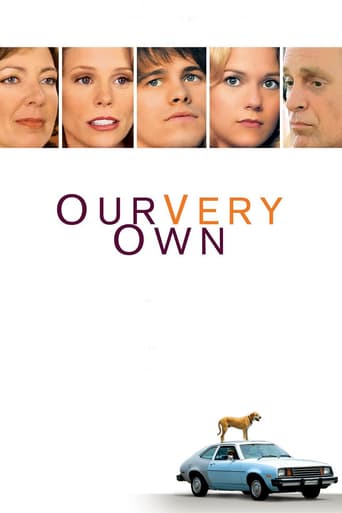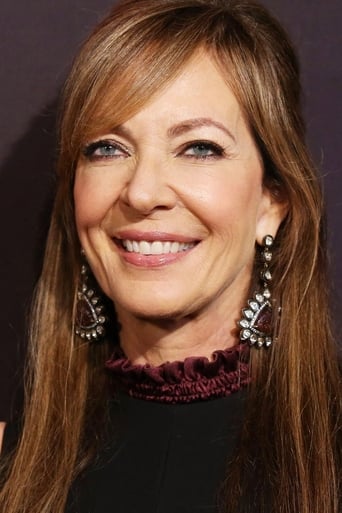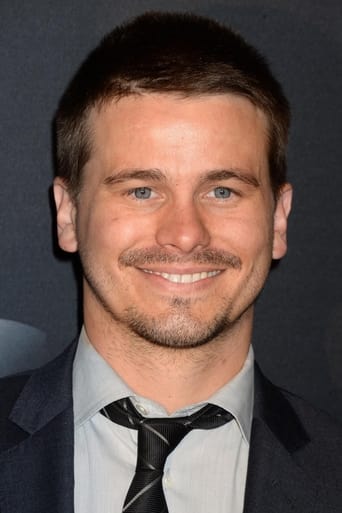wordsmith_57
Small town drama at its very best. The real factor was so evident I thought the movie had been made in late 70s. Surprisingly, it was made in 2005, and someone knew what a small town was all about before strip malls, cell phones, and chain restaurants destroyed the landscape. Like the favorite classic, Breakaway, Our Very Own, captures the yearning of teens in middle America to overcome and stretch beyond their present circumstances. The main plot is the desire of Melora to meet Sandra Locke, yes, the Sandra Locke. Apparently she was the local girl who made it to the big time. The subplots are far more intriguing: Clancy's family deals with his father's alcoholism and its destructive ripples; Ricky is practically stalking Bobbie, who made the mistake to go out with him once; and we wonder about Mrs. Nutbush and her clan. There are all sorts of characters to fill in the storyline. Everyone of them adds something to the story. Like real life, nothing is neatly tied up--it simply continues. But there is a satisfaction when the movie ends. Clancy's dad is trying, Melora takes solace in Clancy's words that they will have their chance to make it someday, and Ricky is properly threatened by the boys to leave Bobbie alone. As for Mrs. Nutbush? Some towns will continue to have their tragedies and mysteries. Don't miss Rufus, the dog who travels by car roof top.
robert-temple-1
This film is a 'must' for all those people who say they do not understand Middle America, because it shows life there very clearly and accurately (minus any reference at all to religion, unlike 'Junebug', which is full of religion as well). The film is set in 1978 in the town of Shelbyville, Tennessee, which is (genuinely) the home town of the Hollywood actress Sondra Locke, who is going to 'return home' for a visit. The occasion is the annual Tennessee Walking Horse National Celebration. (Tennessee Walkers, for those who don't know, are an internationally famous type of horse bred and trained in that area.) I know this part of Tennessee well, and never thought I would see a movie in which Tullahoma, Tennessee, was mentioned (it is the next town along from Shelbyville). One of the actors in the film, Derek Carter, comes from Murfreesboro, which is just on up the road a piece. The priceless character actress Dale Dickey, who plays a waitress named Skillet (a 17th century word for frying pan which survives only in the American South) comes from Knoxville. The brilliant writer, producer, and director of this film, Cameron Watson, comes from Louisville, Kentucky, not a long drive away either. Many of the actors come from such places as Alabamba, Georgia, Virginia, and Ohio. They know how to play the characters in this remarkable ensemble film with genuine truth and compassion. It is a truly magnificent achievement by the whole team, and the script is particularly brilliant. One reviewer said there were too many plots and sub-plots, but that is the whole point: this film is intended to show the rich fabric and cross-weave of life in such a town, with all its stories going on at once and relating to one another, like those novels by French author Jules Romains (of which I have read no less than 31), whose literary theory of 'unanisme' advocated the portrayal of social groups or small societies as living organisms, such as we see here perfectly accomplished on screen. This is exactly what a small Southern town used to be like before they were all destroyed by the malls, and now by cellphones. How well I know that 'the kids' in that area all looked forward to 'driving up to Nashville' as their main source of excitement, or at least it was then. There are two main groups in this film: three women who grew up together and now have their grown-up lives and vicissitudes, and a group of five young kids who form a tight group of pals, three boys and two girls. These kids give wonderful performances, especially the amazingly charming Autumn Reeser as a girl with the equally unusual name of Melora. The main performance in the film is however by the brilliant actress Allison Janney, who is married to the hopeless alcoholic Keith Carradine, and is mother of Jason Ritter, Melora's boyfriend. Janney brings Oscar-level acting to this film, and conveys such tragedy, pathos, and desperation, with such gentility and understatement, that she provides the central core to the story. Her plight is truly heart-rending, as her furniture is repossessed, her car is smashed by her drunken husband, the house is about to be repossessed, her checks all bounce, they won't let her have groceries at the supermarket, and she endures total social humiliation in front of all her life-long friends. Her best friend played by Cheryl Hines is also marvellous. They muse to each other at local social events: 'Do you know just about everybody we grew up with is still here?' 'Yes, I reckon most of them are.' This is the social counterpoint to 'our very own Sondra Locke' who escaped from the town to lead a life of inconceivable glamour and to star in movies with Clint Eastwood. I bought this DVD of a film of which I had never heard because I wanted to see Mary Badham, who had not appeared in anything for 39 years, but her part was so small there was little to see, alas. (I had just seen 'This Property Is Condemned' of 1966 in which she was so amazing, and was curious about 'what ever happened to her', as she was so talented.) The film has wonderful performances by Hilarie Burton, Faith Prince, Beth Grant, Michael McKee, and any number of other fine players. Everybody is good, and the whole thing worked like a dream. They must all have believed deeply in what they were doing, and Cameron Watson is a superb director who knows how to get the most out of a story, his actors, and a sense of place. Hats off to all of these people and to all those fine folks who 'want to go to Nashville', to the delightful 'Valley girls' I used to know in Cowan and Winchester, to red-neck Tracy City with its cute cheerleaders, to cerebral and beautiful Sewanee, to a dreaming Monteagle, to the whole area, both mountain and valley. What a wonderful part of the world it is. It deserved this movie, to explain itself to outsiders. I wish all the outsiders could see it. All of the rich dialogue, with its quaint local expressions such as 'I swanee!' and 'by Pete!', is accurately there, a true joy to the discerning ear. This film is a triumph of reality over illusion.





